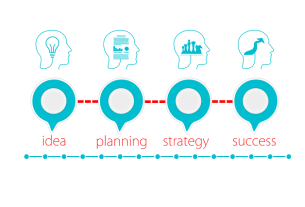Event Planning for Local Businesses is essential for creating events that resonate with communities and foster deep connections with target audiences. Successful local business events require a data-driven approach that reflects community tastes and preferences, ensuring meaningful experiences through strategic partnerships and inclusivity. Engaging potential attendees via social media and event listings offers valuable insights to tailor themes and activities. This two-way communication ensures the planning process is both relevant and aligned with audience expectations, enhancing the local event landscape and solidifying the business's reputation as a community-focused and reliable entity. Selecting an appropriate venue that resonates with the event's goals and target audience is critical for better engagement and success. Logistics management is vital, involving comprehensive oversight of attendee registration, guest services, catering, and technical support, with backup plans to handle issues smoothly. Strategic marketing, combining digital and traditional methods, is key to maximizing ROI through targeted promotions, leveraging social media, influencer partnerships, and geotargeted ads. Creative branding and immersive themes can make the event experience memorable, while special offers and exclusive deals during the event stimulate attendance and spending, yielding a favorable return on investment for local businesses.
Local businesses stand at a pivotal juncture to fortify their market presence through strategic event planning. This article navigates the intricacies of orchestrating events that not only captivate community engagement but also strategically amplify brand visibility and maximize return on investment (ROI). We delve into the art of selecting optimal venues, meticulously managing logistics, and deploying effective marketing and promotional strategies to ensure these gatherings resonate with attendees and elevate the local business’s stature. Join us as we explore the dynamic landscape of event planning for local businesses.
- Leveraging Community Engagement: How Local Businesses Can Plan Events That Resonate
- Strategic Venue Selection and Logistics Management for Effective Local Events
- Maximizing ROI: Marketing and Promotional Tactics for Local Business Events
Leveraging Community Engagement: How Local Businesses Can Plan Events That Resonate

Community engagement is a cornerstone in event planning for local businesses, offering a unique opportunity to create events that resonate with the target audience. By identifying and aligning with the interests and needs of the community, businesses can design experiences that foster connection and loyalty. Collaborating with local organizations, influencers, or leaders can amplify an event’s relevance and reach. These partnerships not only lend credibility but also ensure that the event serves a purpose beyond sales, such as supporting local causes or highlighting community talents.
To maximize the impact of community engagement, businesses should leverage data-driven insights to understand local preferences and tailor their events accordingly. Utilizing social media platforms and local event calendars to gauge interest and solicit feedback is invaluable for refining the event’s theme and activities. By creating a dialogue with potential attendees, businesses can ensure that the event planning process is inclusive and responsive to the community’s desires. This approach not only enriches the local event ecosystem but also positions the business as a committed and responsible member of the community, thereby fostering long-term relationships and brand loyalty.
Strategic Venue Selection and Logistics Management for Effective Local Events

When organizing local business events, strategic venue selection plays a pivotal role in the overall success of the gathering. Choosing a venue that aligns with the event’s objectives and audience is crucial for engagement and impact. Factors such as accessibility, capacity, ambiance, and technological infrastructure should be considered to ensure the location not only accommodates attendees comfortably but also reinforces the event’s branding and messaging. Local businesses must assess the proximity to their target market, transportation links, and parking facilities to facilitate ease of attendance. Additionally, venues that offer versatile spaces can enhance the adaptability of events, allowing for different setups depending on the nature of the activities planned.
Logistics management is an integral component of event planning for local businesses. Effective logistics encompass a comprehensive approach to coordinating all aspects of event execution, from registration and guest services to catering and technical support. Anticipating potential challenges and having contingency plans in place ensures a smooth experience for participants. Local businesses should leverage partnerships with reliable vendors and service providers to streamline processes such as audio-visual setup, food and beverage provision, and transportation arrangements. By meticulously planning these elements, businesses can deliver events that are not only memorable but also reflect well on their brand’s professionalism and reliability.
Maximizing ROI: Marketing and Promotional Tactics for Local Business Events

Crafting a successful event for local businesses hinges on strategic marketing and promotional tactics that maximize return on investment, or ROI. A well-planned marketing campaign should integrate both online and offline methods to reach a broad yet targeted audience. Utilizing social media platforms tailored to the local community can amplify visibility and engagement. Local business events gain traction when leveraging geotargeted ads and collaborating with influencers who have a significant following within the area. Additionally, email marketing campaigns that segment local residents and past attendees can drive interest and repeat attendance.
In the realm of promotional tactics, creative branding and thematic elements can transform a mundane event into an immersive experience that resonates with participants. Offering exclusive deals or limited-time offers during the event can incentivize attendance and spending, thereby boosting the event’s economic impact. Local businesses should also consider partnerships with other businesses to cross-promote the event, creating a network effect that expands their reach. By meticulously planning every aspect of the event from promotion to execution, local businesses can ensure they deliver an experience that not only attracts but also retains customers, ultimately leading to a higher ROI for their efforts.
local businesses stand to gain significant advantages by incorporating event planning into their marketing strategies. By leveraging community engagement, strategically selecting venues, and maximizing return on investment through effective marketing and promotional tactics, these events can foster strong customer relationships and enhance brand visibility. The insights provided in this article serve as a roadmap for local businesses aiming to elevate their presence and drive growth through well-executed events. Implementing these strategies not only creates memorable experiences for attendees but also positions businesses as integral parts of their communities, leading to sustained success and increased economic impact. Event planning for local businesses is more than just a tactic; it’s a strategic investment in the community’s future and the company’s growth.



